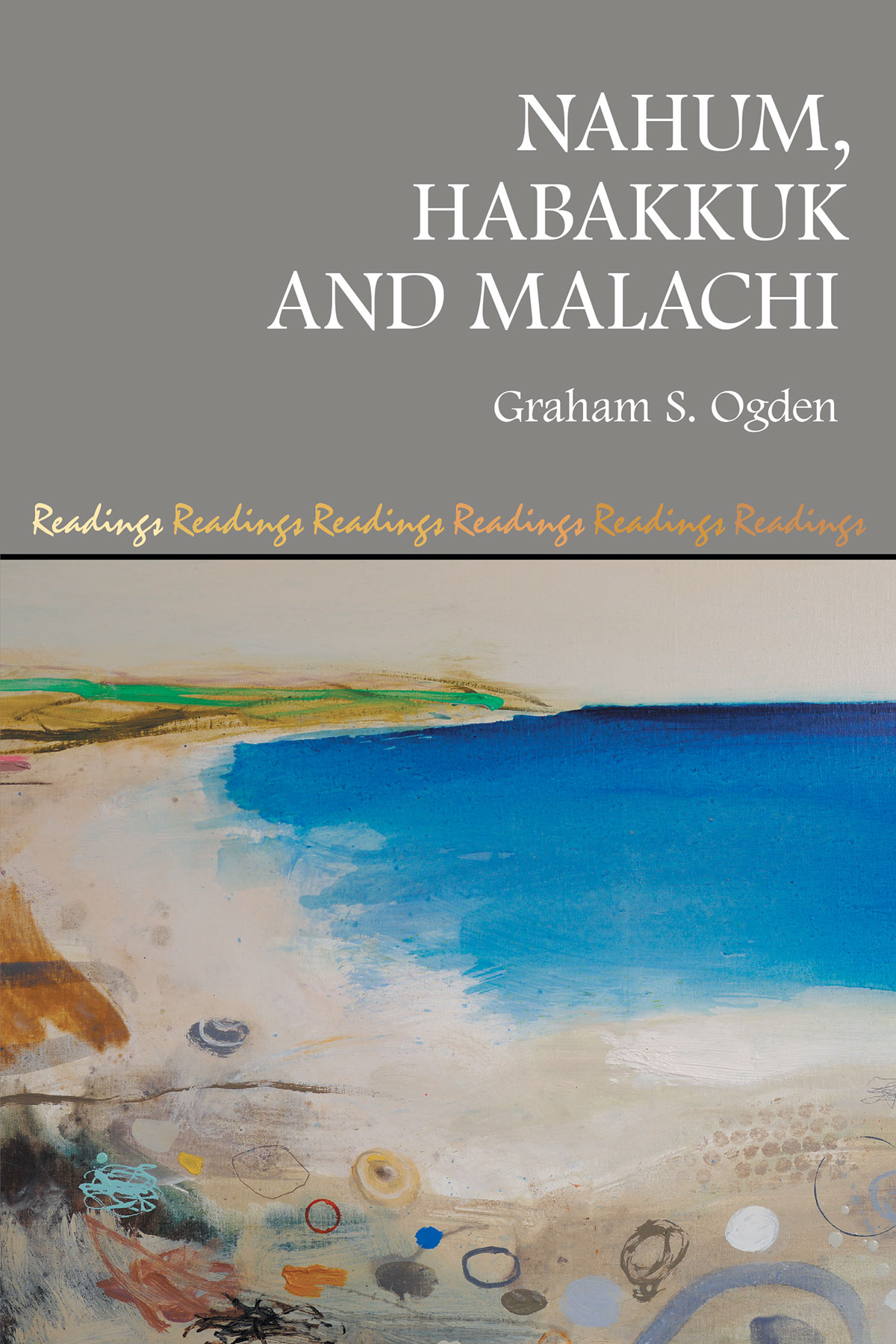Nahum, Habakkuk and Malachi
£20.00 – £60.00
Nahum, ironically named ‘the compassionate one’, Habakkuk who laments God’s failure to answer his questions about justice and violence, and the eponymous Malachi are the three characters whose record is the focus of this reading.
Nahum, ironically named ‘the compassionate one’, Habakkuk who laments God’s failure to answer his questions about justice and violence, and the eponymous Malachi are the three characters whose record is the focus of this reading. The commentary offers a close reading of the Hebrew text of each book along with its rhetorical features. The three books are read from within their several ancient contexts, literary, cultural and theological.
Only Habakkuk is specifically identified as a ‘prophet’, while Nahum’s and Malachi’s editors studiously avoid the term, raising a question about why these three books have been honoured with a place in the Scroll of the Twelve rather than somewhere else. Each book is titled a Massa’ by its editor, identifying them as examples of an emerging literary trope that combines both prophetic and wisdom elements in a didactic purpose.
Nahum is identified not as a prophet but as a Visionary. He saw the dire situation of his people and expressed his longing for God’s intervention. The God of whom he spoke was one ‘jealous, and avenging’, one he longed would act against the overwhelming power of the Assyrians that threatened his people.
Habakkuk, though identified as a prophet, shows no evidence of any prophetic activity. He laments the failure of justice and consequent violence as witnessed (1.2-4). The Lament-form used has been torn in two by the editor for the purpose of inserting a Dialogue with God (1.5-2.20), a Dialogue that fails completely to answer Habakkuk’s ‘Why?’ questions in 1.1-2. The concluding portion of the Lament (3.2-19) witnesses to Habakkuk’s continued trust in his God despite the divine failure to resolve his questions.
The eponymous ‘Malachi’ is identified as a Messenger, never as a prophet, as the book reports six different and independent messages covering issues that arose during an extended period in early postexilic Judaean life. Using a frame of six Question-Response forms that feature rhetorical questions, his audiences deny the validity of each negative charge against them.
Graham Ogden has been a United Bible Societies’ Translation Consultant. He lives in Ballarat, Victoria, Australia.
Additional information
| table of contents | NAHUM: A COMMENTARY Introduction Contents and Structure Massa’—an Oracle? Authorship Nahum—Who or What Was He? Date Literary Features Assyria in the Old Testament Nineveh the City Foreign Nation Oracles Nahum’s Theological Ideas Reading Strategy EXEGESIS 1.1 Title 1.2-6 The Character of YHWH 1.7-11 Plot Against YHWH? 1.12-15 (2.1) Relief for Judah 2.1-13 (2.2-14) Against Assyria 2.1-9 (2-10) Assyria under Threat 2.11-13 (12-14) Against Assyria 3.1-7 Woe to Nineveh 3.8-13 Nineveh Will be Devastated 3.14-19 Assyria’s End HABAKKUK: A COMMENTARY Introduction Outline of Contents Structure A Reading Strategy Authorship and Unity Historical Setting Habakkuk’s Place in the Scroll Relationship to Other Books Literary Features of Habakkuk Textual Issues Theological Basis of Habakkuk EXEGESIS 1.1 Superscription 1.2-4 Habakkuk’s Lament—Part A 1.5-11 God’s Response? 1.12-17 Habakkuk Challenges God 2.1 Habakkuk Awaits God’s Reply 2.2-5 God’s Reply 2.6-20 ‘Woe to you who…’ 2.6-8 First ‘Woe’ Oracle 2.9-11 Second ‘Woe’ Oracle 2.12-14 Third ‘Woe’ Oracle 2.15-17 Fourth ‘Woe’ Oracle 2.18-20 Fifth ‘Woe’ Oracle 3.1-19 Habakkuk’s Lament—Part B 3.1 Title 3.2-15 Confession of Trust 3.16 The Petition 3.17-19 Song of Praise CONCLUSION On the Reading Thesis On Habakkuk 2.4 as the Core Text On Prophets and Sages On Violence and Theology Select Bibliography PREFACE MALACHI: A COMMENTARY Historical Situation Authorship Date From Spoken to Written Structure and Contents Literary Characteristics Malachi’s Concerns Relationship to Deuteronomy On Reading Malachi Access to Malachi the Book Nature of the Book Outline EXEGESIS 1.1 Title 1.2-5 On God’s Love-in-Reverse 1.6–2.9 On Priestly Failures 2.1-9 The Levi Covenant 2.10-16 Opposing Foreign Marriages 2.17–3.5 Refining the Community 3.6-12 Guaranteeing a Land of Plenty 3.13–4.3 Is Serving God of Benefit? 4.4-6 (3.22-24) In Conclusion POSTSCRIPT On Translating and Interpreting Malachi Select Bibliography CONCLUSIONS On Prophets and Prophecy A Final Note on Translation and Interpretation |
|---|---|
| Format |


Reviews
There are no reviews yet.